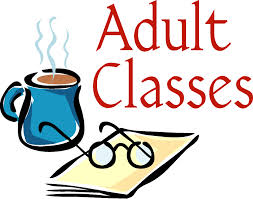-
Recent Posts
Archives
Connect Arkansas is a project of the Arkansas Capital Corporation (ACCG). It is a nonprofit corporation whose mandate is to increase the use of high-speed internet and improving and supporting internet adoption all over Arkansas. The corporation was created in the wake of the passage of the Broadband Act, which was signed into law in 2007 by Arkansas Governor Mike Beebe.
The goal of the law is to improve the personal lives and creating economic opportunities for the people of Arkansas. Part of what Connect Arkansas does is to provide adult education to increase adult digital literacy in the state. By getting adults back into school chairs, the belief is that economic opportunities will be multiplied for Arkansans.
Adult digital literacy classes take place every day of the week throughout the year. For instance, in January there will be a one hour class in the Grant County Library of Sheridan which will cover the most frequently asked questions about computers and the internet. Later in the month the Fort Smith Public Library will offer classes in Advanced iPads, Introduction to Windows 8, and Computer and Internet Questions and Answers.
Exciting new Nurse Assistant Training with @RedCross! Call 216-373-3568 #FREE #NurseAssistant #Awesome #Opportunity pic.twitter.com/K4mRn8fwD9
— Parma Adult Ed (@ParmaAdultEd) December 13, 2013
In this school there is no need for classroom furniture. That is because Ball State University offers an excellent on-line adult education program that is earning kudos and national recognition from such places as US News and World Report.
Ball University offers degrees on-line for graduate students in the Teachers College; the Miller School of Business; and the School of Nursing. All the on-line degree programs are ranked in the top 20 in the country in USNWR ranking of Best Online Programs of 2014.
Ball State also has an online bachelor’s degree program which is ranked 29th best in the country.
At the beginning of the fall semester in 2013 there were 17,225 students enrolled on the campus of BSU. An additional 2,984 were enrolled completely in the online courses. One student, Tracy Bassett, a 39-year-old Indianapolis Broad Ripple resident also works full time at UnitedHealthcare.
“The online format at Ball State … is so similar to how I do much of my job today,” Bassett said. “I manage a territory of 12 states, so when I am not traveling to in-person meetings, much of my day is conference calls, emails and instant messaging.”
 At the end of the twentieth century close to 40 million people decided to get back behind school desks and enroll in one of the programs of the US Adult Education and Literacy System, (AELS).
At the end of the twentieth century close to 40 million people decided to get back behind school desks and enroll in one of the programs of the US Adult Education and Literacy System, (AELS).
Several studies have shown that continuing education most appeals to those who already have some education, similar to the notion that the “rich get richer.” Nevertheless, according to statistics from the US Department of Education in the years from 1992 through 1999 there were 31 million enrolled in AELS programs and almost 8 million of those were the working poor. Welfare recipients made up 3.3 million, and 9.3 million were unemployed. In addition, 2.2 million were those participating in AELS programs while in jail.
AELS programs have their roots in the very foundation of the beginning of the great American experiment. Four hundred years ago the earliest settlers maintained religious instruction, vocational apprenticeships and common schools for their growing population. The original thirteen colonies established adult literacy education during the Revolutionary War through federal involvement. This tradition saw a huge growth spurt only fifty years ago when the Economic Opportunity Act was passed in 1964.
This law created the funding for adult basic education (ABE). Two years later the Adult Education Act of 1966 transferred the ABE from the poverty programs of the EOA to the education programs of the US Department of Education, (DOE.)
 Whether you are a teen that wants to learn how to make jewelry or a retiree with a desire to learn how to use that iPad their grandkids bought for them, the library is the place to go to learn more.
Whether you are a teen that wants to learn how to make jewelry or a retiree with a desire to learn how to use that iPad their grandkids bought for them, the library is the place to go to learn more.
“We have a really great community response to our programs,” said Prudence Fallon, the director of adult services at the Tiverton Public Library. “People are really good about letting us know what they want, too.”
Not many people feel nostalgic for school furniture, blackboards or bullies. They are happy and excited to be getting a great education which is fun and invigorating by just hopping over to the library.
“I run book groups at the high school and the middle school,” Fallon said. “I visit the schools regularly. The students and the teachers are good about telling us what they want.”
“We base what we offer on what people ask for and we do a lot of guesswork,” she said. “These programs do well with all ages.”
“We have a good idea of what people like from past programs,” Fallon said. “People are interested in programs about historical events and writing and crafts.
“I just did a program on the JFK assassination that was very well attended. And anything to do with Lizzie Borden is a hit. People love that.”
Reading for Redemption, how Department of Correctional services is using reading & creative writing to help inmates. http://t.co/kryu6Nzrh9
— Juta Adult Learning (@JutaLearning) October 14, 2013
According to the Penn State College of Education “Graduate degrees in Adult Education are among the most practical – and adaptable – in all of higher education.”
Anyone considering a career change, who is willing to get back into school chairs, should consider the satisfaction and importance of adult education. Penn State offers a large choice of educational opportunities for all those interested in teaching adults on some level.
Penn State offers M.Ed. and D.Ed. degrees, both of which are practitioner degrees. They allow graduates to use their knowledge in a wide variety of suitable and satisfying ways. There is also the Ph.D. degree, which is a research degree. With a doctorate graduates are then qualified to advance the theoretical foundations, empirical knowledge, and strategic role of adult education.
Graduates of the program can expect to have many options including becoming tenured professors or administrators at many of the best universities of North America in their departments of adult and continuing education. The unique areas of practice within the field of adult education incorporate the following:
• adult basic education
• community education & organizing
• adult & family literacy
• professional and continuing education
• distance education
• human resource development
• workplace learning
• informal education
• educational outreach
• post-secondary education
• religious education
• social advocacy & action